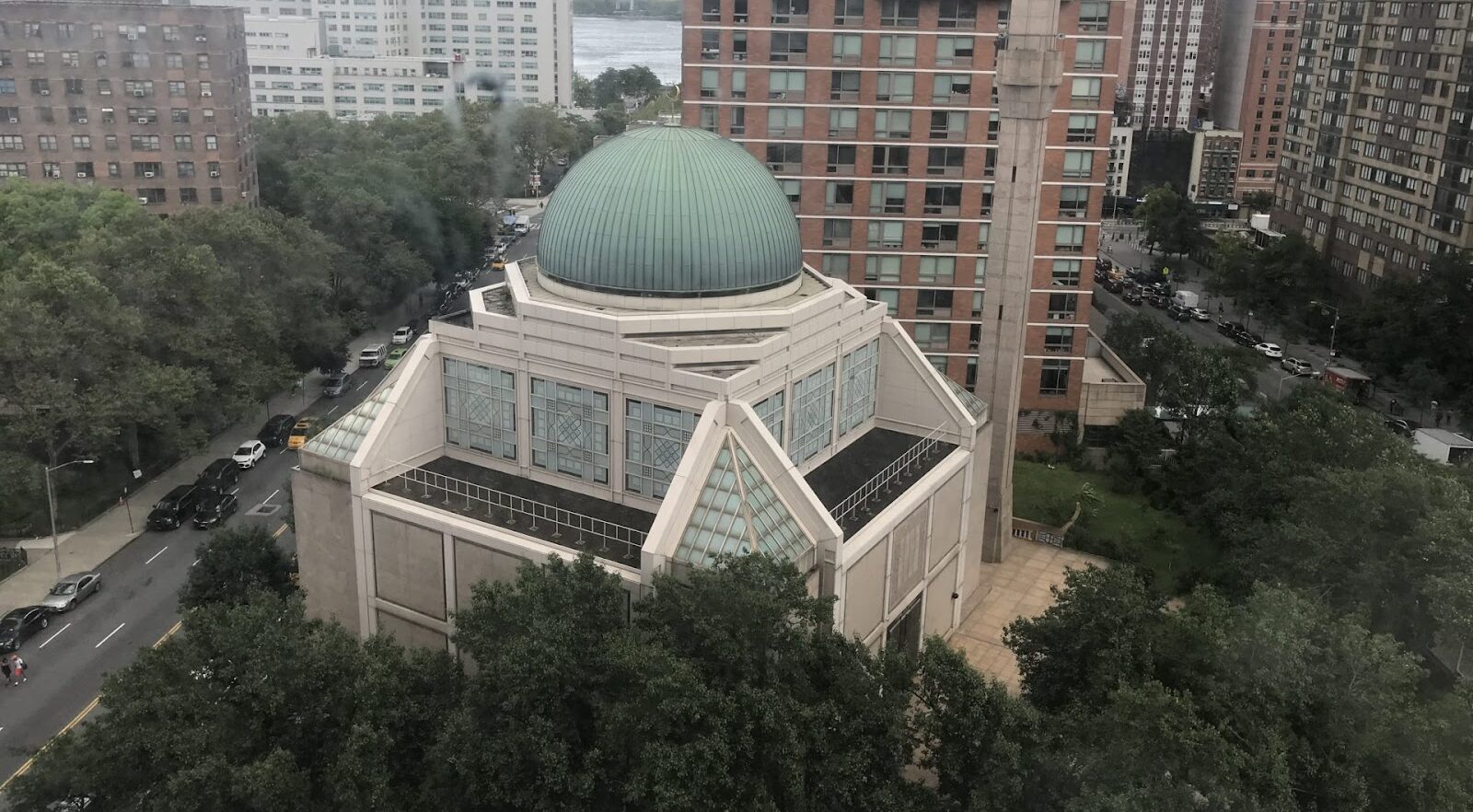In October, the CUNY SPS South Asian Student Union (SASU) visited the mosque Islamic Cultural Center of New York for a deeper understanding of Islam. Naurene Sultana, B.S. in Information System and SASU member, was one of the students who made the trip on Saturday, October 26, rekindling her connection with her faith and cultural heritage. In an interview, Naurene shares her thoughts on the experience and what it meant to her as a Bengali-American Muslim. Her experience serves as a reminder of the importance of exploring and understanding diverse cultural and religious practices in our community.
The Kiosk: What was the atmosphere like? Did the architecture leave a lasting impression?
Naurene Sultana: The atmosphere felt very peaceful, like another home. As a Muslim, it felt nostalgic since I have been to a mosque before. After 10 years of not going to one, it felt like the building was welcoming me. It made me reconsider my life choices as well, that I should be more faithful and believe in God’s mercy more, making me more optimistic in life.
The Kiosk: What’s something you learned about the Islamic faith or community that you hadn’t expected before going?
Naurene Sultana: I met Brother Khalifa [the Imam] when I went with the South Asian Studies Union club. I asked him questions and the one thing that struck me that was new was the rule regarding women being near dead bodies during funerals. I thought it was prohibited for women, but Brother Khalifa said it is discouraged, not banned. I also learned about the Jahiliyyah period, when people didn’t have guidance before the Prophet Muhammad’s (peace and blessings be upon him) time.
The Kiosk: Did you notice any unique rituals or practices that you hadn’t seen before in other religious settings?
Naurene Sultana: I noticed a microphone stand with stairs near the area where the call to prayer happens in the Jummah prayer room [is a designated room for Jummah prayer, which is also the most important prayer]. I realized not all mosques I went to had this, but it is meant for Friday sermons, which is Islamically accurate to how the Prophet Muhammad (peace and blessings be upon him) would give sermons, and it felt timeless to see it as well.
The Kiosk: How did this visit make you reflect on your own beliefs or cultural background?
Naurene Sultana: Growing up as a Bengali in this country, I felt uncomfortable with the way I was taught Islam. I did not miss going to the mosque back when I was younger. I also realized that I had to relearn Islam, since my community unfortunately mixed our cultural values with Islam, which isn’t authentically Islam. When I went to the mosque now, versus a non-dominant Bengali one, I was able to appreciate and feel a different vibe to a mosque; how a mosque should be. It felt amazing to see people of different races and ethnicities praying to the same God.
The Kiosk: What’s one takeaway from this trip that you think more students should know about South Asian places of worship?
Naurene Sultana: Islam is a lot more than its rules and directness of values. It teaches people to be more diligent in their actions, to avoid sin to protect their health, soul, and mental health, but most importantly, Islam is a very forgiving religion if sins are atoned for. The architecture is one of the beauties of Islam, and that the call to prayer is meant to unify everyone regardless, whether they are a man, woman, different ethnicity or race because what matters is that Muslims all come to pray. As humans with free will, I hope students can take away the fact that Islam is a unifying religion of peace, protection, and kindness. The saying “kill them with kindness” doesn’t even imply, because Muslims are taught to be kind genuinely even if people are mean.





